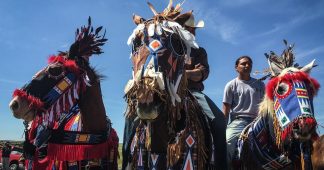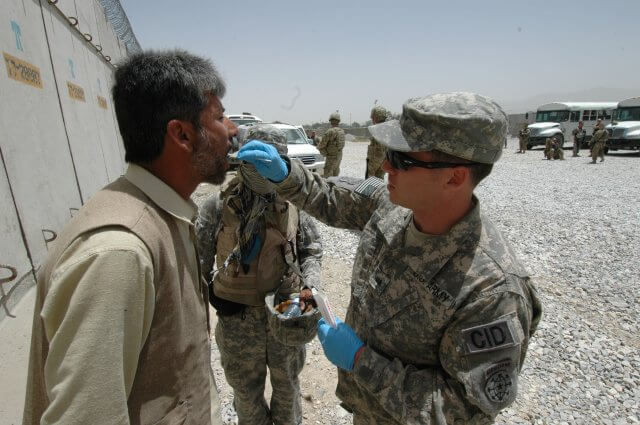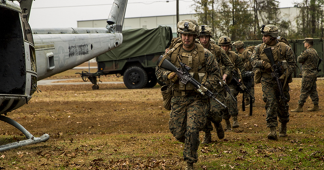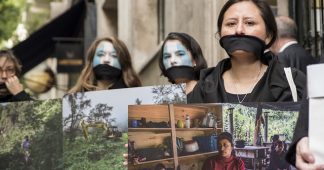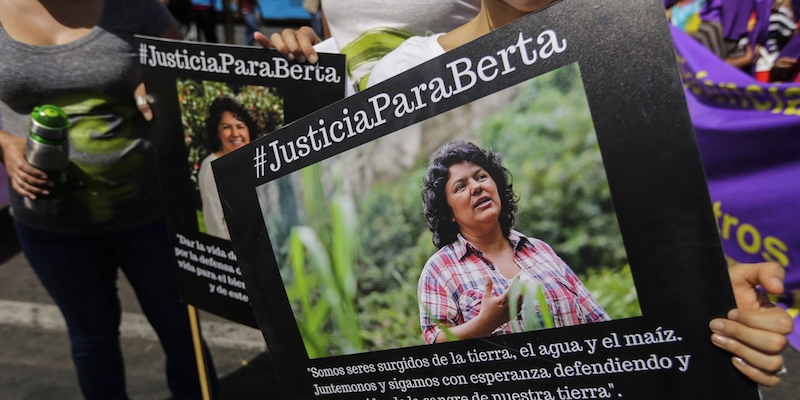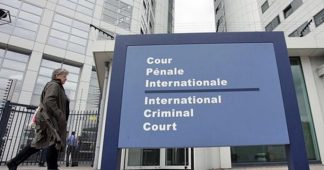Saro-Wiwa, who led a nonviolent campaign against environmental degradation of the land and waters of Ogoniland by Shell was executed by the Nigerian military dictatorship in 1995.
Source: Newsclick / The Dawn News / November 30, 2017
Amnesty International on Tuesday released a groundbreaking report calling for international investigation against Anglo-Dutch oil giant Shell for human rights abuses in Nigeria. The organisation called upon UK, Nigeria and the Netherlands to consider a criminal case against Shell in the light of the evidence which it claims amounts to “complicity in murder, rape and torture”.
The report accused Shell of complicity in a ‘swathe of horrific crimes committed by the Nigerian military government in the oil-producing Ogoniland region in the 1990s’.
The recent report is based on the massive cache of documents which Shell was forced to disclose part of a civil case brought against the company.
“The evidence we have reviewed shows that Shell repeatedly encouraged the Nigerian military to deal with community protests, even when it knew the horrors this would lead to – unlawful killings, rape, torture, the burning of villages”, said Audrey Gaughran Director of Global Issues and Research at Amnesty International in a statement.
The Guardian reports , based on eyewitness statements, ‘Shell managed a unit of undercover police officers, trained by the Nigerian state security service, to carry out surveillance in Ogoniland’ in 1993.
In the early 1990s Movement for the Survival of the Ogoni People (MOSOP), led by Ken Saro-Wiwa had launched massive protests against the company and exploitation of the region. The group pressed for a bill of rights to gain political and economic autonomy for the indigenous population and protect their homeland from “an ecological disaster”.
Calling the environmental degradation as a war against the indigenous Ogoni people, in an interview to Channel 4, Saro-Wiwa had said :
“The Ogoni country has been completely destroyed by the search for oil…. Oil blowouts, spillages, oil slicks, and general pollution accompany the search for oil…. Oil companies have flared gas in Nigeria for the past thirty-three years causing acid rain…. What used to be the breadbasket of the delta has now become totally infertile. All one sees and feels around is death.”
Documents show that on October 29, 1990, Shell requested “security protection” to stop the protests against the company. Over the next two days , police attacked an Ogoni village with guns and grenades, killing at least 80 people, and burning almost 600 homes.
In 1994, the movement organised mass actions against Shell in the region disrupting the oil production. The government under General Ibrahim Babangida banned all public gathering and declared all acts of disturbances as acts of treason.
The military repression escalated by 1994 under the new government of General Abacha. According to leaked documents and reports, Shell helped provide Nigerian police and military with logistical support and aided security sweeps of the oil-rich Niger Delta. The documents claimed that the oil giant systematically colluded with the military and Mobile Police Force (MPF), known as the “Kill and Go” in the abuses. Hundreds were summarily executed by the military.
In 1995, Saro-Wiwa along with the eight MPSOP leaders, known together as ‘Ogoni Nine’ were executed by a military tribunal on murder charges. General Abacha’s regime along with the Shell was accused of rigging the trial and bribing the witnesses in the case to provide fake testimony.
Earlier in 2013, a Dutch court ruled that the Royal Dutch Shell can be held partially responsible for pollution in Nigeria’s Niger Delta region. The company tried to evade the legal implications arguing that the oil spill in the Niger Delta was due to sabotage, thus not bringing the issue under Nigerian law.
The Royal Dutch Shell Plc, Shell’s parent company with headquarters in the Netherlands maintained that it could not be held responsible for the actions of its subsidiary in Nigeria. On the other hand, the subsidiary Shell Petroleum Development Company Nigeria Ltd. had insisted that it cannot be tried by the court in the Hague for problems arising from Nigeria.
In 2009, Shell had agreed to pay $15.5 million in settlement of a legal action in a New York federal court, in which it was accused of having collaborated in the execution of the ‘Ogoni Nine’.
